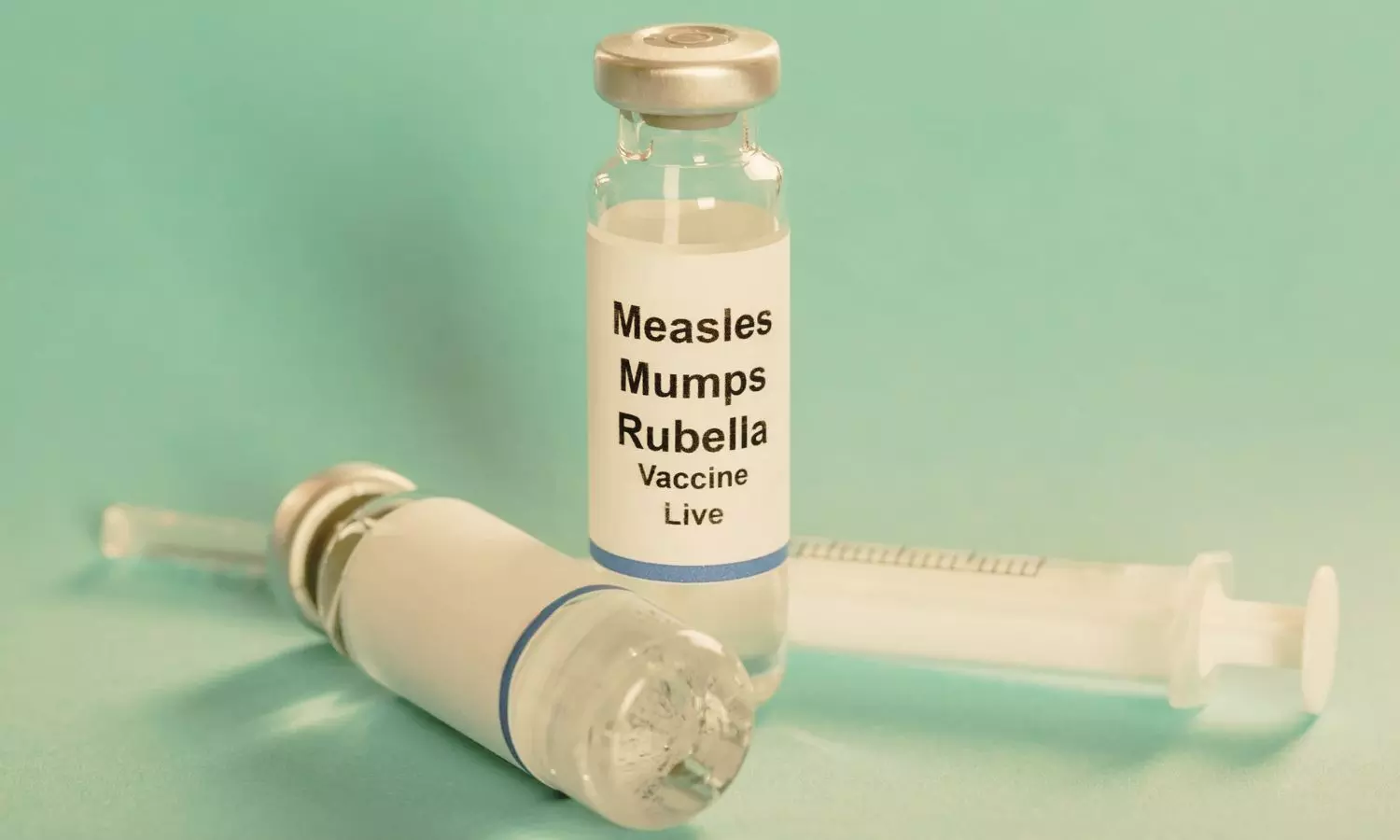Receipt of MMR vaccine linked to reduced rate of antibiotic treatment in kids under 2: Study

A recent register-based cohort study conducted across Denmark, Finland, Norway, and Sweden aimed to investigate the potential non-specific effects of the measles, mumps, and rubella (MMR) vaccine given after the third dose of diphtheria-tetanus-acellular pertussis (DTaP3) vaccine. Previous research has suggested that MMR vaccination may have beneficial non-specific effects, such as reducing the risk of infections not targeted by the vaccine.
The study, conducted by Lise Gehrt and colleagues and published in the journal Vaccine. It utilized Cox proportional hazards regression with age as the underlying timescale and vaccination status as a time-varying exposure. This methodology was employed to estimate covariate-adjusted Hazard Ratios (aHRs) and inverse probability of treatment weighted (IPTW) HRs of antibiotic treatments. Additionally, summary estimates were calculated using random-effects meta-analysis. The primary objective of the study was to investigate whether receiving the MMR vaccine after DTaP3 was linked to reduced rates of antibiotic treatments in children.
The study included 831,287 children who had received DTaP3 but not yet MMR vaccine. The key findings of the study were:
-
Across all Nordic countries, receipt of the MMR vaccine after DTaP3 was associated with reduced rates of antibiotic treatments.
-
The adjusted Hazard Ratios (aHRs) for antibiotic treatments were 0.92 in Denmark, 0.92 in Finland, 0.84 in Norway, and 0.87 in Sweden.
-
The summary estimate across all countries was 0.89, indicating an 11% lower rate of antibiotic treatments associated with MMR vaccination after DTaP3.
-
A negative control exposure analysis comparing children vaccinated with DTaP3 versus two doses of DTaP further supported these findings.
The study concluded that MMR vaccination after DTaP3 was associated with an 11% lower rate of antibiotic treatments across the Nordic countries. While the negative control analysis suggested some residual confounding. The findings suggest that the potential non-specific effects of MMR vaccine on reducing antibiotic use are of limited clinical and public health significance for milder infections treated out-of-hospital in the Nordic setting. These results contribute to our understanding of the broader impacts of childhood vaccinations and highlight the importance of ongoing research in this area.
Reference:
Gehrt, L., Englund, H., Laake, I., Nieminen, H., Möller, S., Feiring, B., Lahdenkari, M., Trogstad, L., Benn, C. S., & Sørup, S. Is vaccination against measles, mumps, and rubella associated with reduced rates of antibiotic treatments among children below the age of 2 years? Nationwide register-based study from Denmark, Finland, Norway, and Sweden. Vaccine,2024. https://doi.org/10.1016/j.vaccine.2024.03.026



